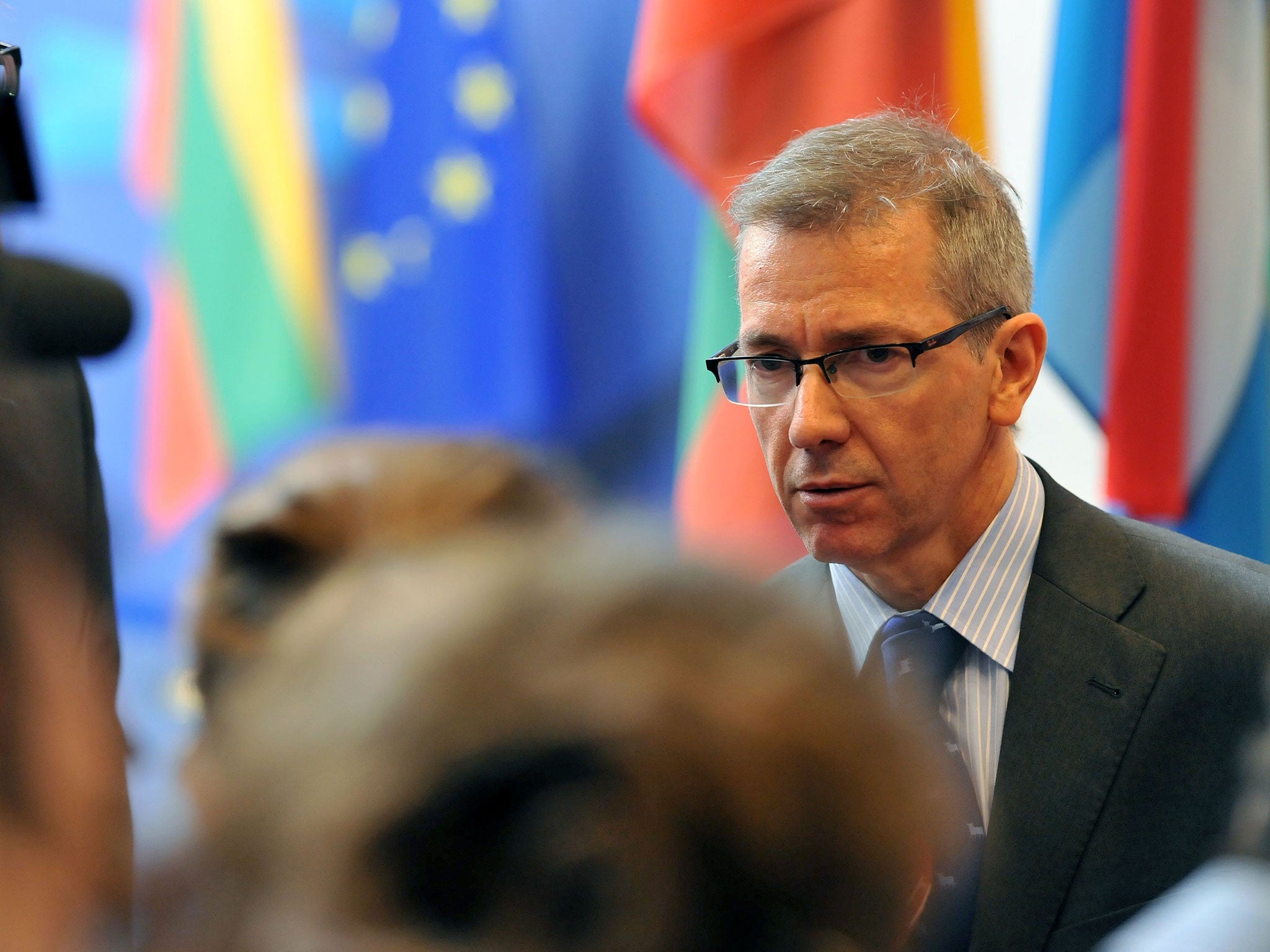Egypt crisis: EU struggles to agree on response
A suspension of €5bn (£4.24bn) in promised aid to Cairo has been discussed

EU governments are struggling to find a united response to the bloody crisis in Egypt amid calls for a suspension of aid and a block on arms shipments.
Senior diplomats from the 28 European Union countries, meeting in Brussels today, reviewed options before agreeing that foreign ministers should meet to formulate a joint approach on Wednesday.
Although a suspension of €5bn (£4.24bn) in promised aid to Cairo has been discussed in phone calls between the British, French and German leaders, some capitals are urging caution. Any move by Europe to “punish” the military-backed interim government would go down badly – they say – with moderates and pro-Western factions in Egypt.
Speaking before the meeting, the Foreign Secretary William Hague said Britain will not take sides amid the “turbulence” in Egypt, which he said he believes could continue for years or even decades. Describing the situation as “very bleak”, Mr Hague told BBC Radio 4’s Today programme: “We don’t agree with military interventions in democratic processes, as we made clear at the time in early July but do we deal with these people as the government of Egypt?... In foreign policy terms these are the people we deal with in power in Egypt; it’s not for us to take sides.”
Today’s meeting of senior foreign policy advisers from EU capitals sought ways to expand on a joint European statement on Sunday which called for political dialogue and warned that fundamental rights “cannot be disregarded, much less washed away in blood”. The meeting ended, as expected, without an agreement.
David Cameron discussed the Egyptian crisis on the telephone on Friday with both the German Chancellor, Angela Merkel, and the French President, François Hollande. The French and German leaders also spoke on the telephone.
It is understood that the possibility of a suspension of a €5bn EU aid programme was one of the ideas discussed in these talks. Officials point out, however, that such a decision would bring little practical pressure on the interim government in Cairo. Almost all of the EU aid programme is already frozen because both the government of the deposed President Mohamed Morsi, and the interim government have failed to meet conditions, including a rolling programme of social reform. The only payments being made go directly to pro-democracy civil groups in Egypt.
They also fear that any move by the EU to suspend aid or arms shipments would push Egypt even further into the arms of Saudi Arabia and the United Arab Emirates, who have little interest in seeing democratic institutions in Cairo restored.
The German Chancellor, facing an election next month, has taken the hardest public line. Ms Merkel has hinted at a possible block on shipments of arms.
Subscribe to Independent Premium to bookmark this article
Want to bookmark your favourite articles and stories to read or reference later? Start your Independent Premium subscription today.

Join our commenting forum
Join thought-provoking conversations, follow other Independent readers and see their replies